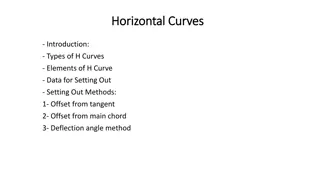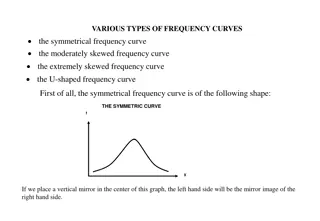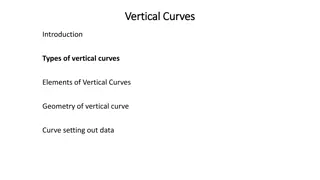
Exploring Curves in Revit and Parametric Design
Discover the versatility and importance of using curves in Revit, from challenging real objects to creating parametric content. Learn essential skills like using reference planes, adding dimensions, and understanding the significance of flexing. Dive into various curve types like Gothic, Roman, and more to enhance your design capabilities. Explore BIM Comics and connect with Paul F. Aubin for further insights and resources.
Download Presentation

Please find below an Image/Link to download the presentation.
The content on the website is provided AS IS for your information and personal use only. It may not be sold, licensed, or shared on other websites without obtaining consent from the author. If you encounter any issues during the download, it is possible that the publisher has removed the file from their server.
You are allowed to download the files provided on this website for personal or commercial use, subject to the condition that they are used lawfully. All files are the property of their respective owners.
The content on the website is provided AS IS for your information and personal use only. It may not be sold, licensed, or shared on other websites without obtaining consent from the author.
E N D
Presentation Transcript
Throw your family a curve Paul F. Aubin
Why? Revit likes straight lines Curves are challenging Real objects aren t straight
When? Whenever you want parametric content If it does not flex, curves work fine In other words, you don t need the stuff in this session if it doesn t flex
What I am assuming you Know Using Reference Planes Adding Dimensions Using Length Parameters Type vs. Instance Parameters Importance of Flexing Other stuff
Gothic Roman Segmental
Roman Segmental Moorish
Ovolo Y X Cavetto Y X
BIM Comics Issue 1 http://goo.gl/E2LPcQ (Box.net) http://goo.gl/QlULjz (Dropbox)
Please Visit www.paulaubin.com paubin@paulaubin.com @paulfaubin Thank you! 14






















